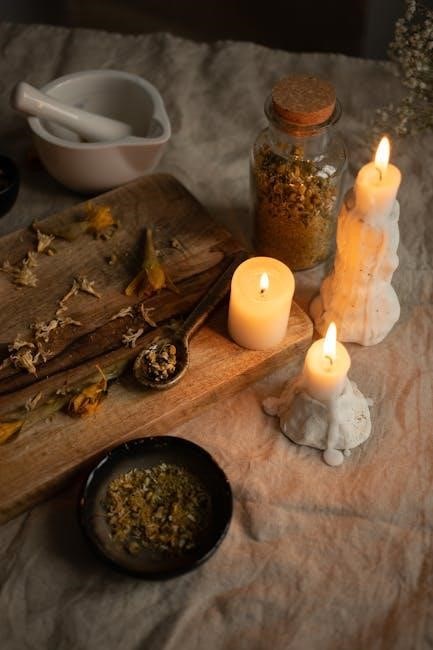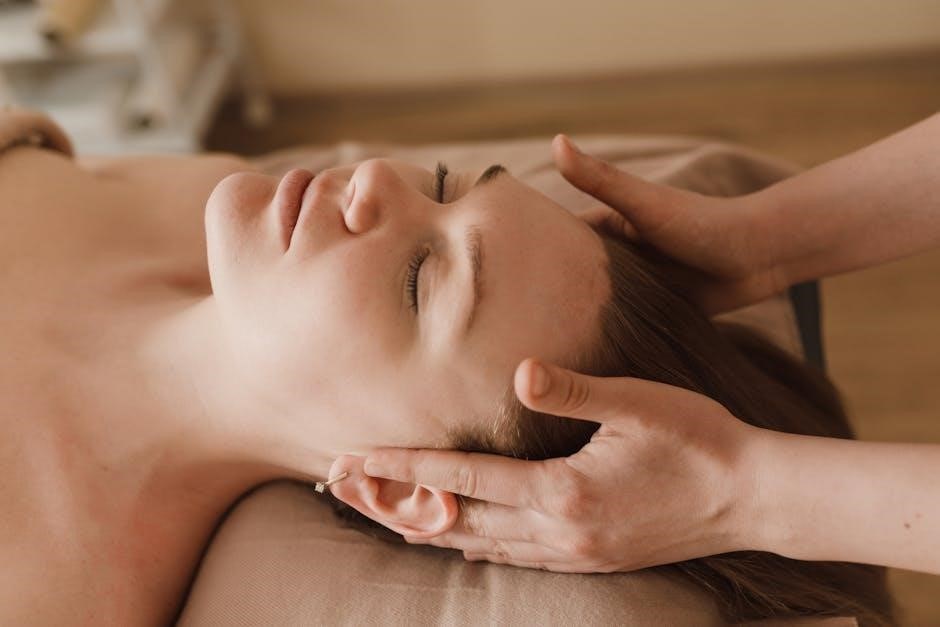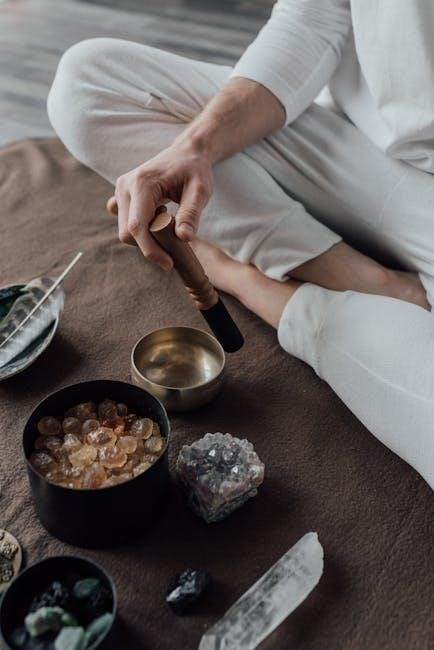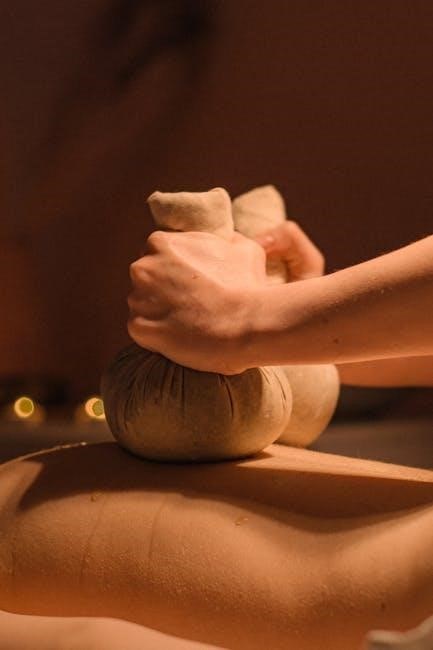Therapeutic Jenga Questions transform the classic game into a dynamic tool for meaningful conversations and self-reflection. This innovative approach fosters connection, emotional growth, and deeper understanding in a fun, interactive way.
What are Therapeutic Jenga Questions?
Therapeutic Jenga Questions are a creative modification of the classic Jenga game, designed to facilitate meaningful conversations and emotional growth. Each block is numbered, and players answer corresponding questions from a list, fostering self-reflection and connection. This interactive tool is adaptable for various age groups and therapeutic needs, making it a versatile resource for building rapport, exploring emotions, and promoting deeper understanding of thoughts and behaviors.
Therapeutic Jenga combines physical and emotional engagement by numbering Jenga blocks and assigning corresponding questions. Players take turns removing blocks, answering the question linked to the number on the block. This method encourages active participation, fosters open dialogue, and helps individuals explore their thoughts and feelings in a structured yet enjoyable manner. The process enhances self-awareness, communication skills, and emotional expression, making it an effective therapeutic tool for diverse settings. Therapeutic Jenga is effective because it merges playfulness with purposeful conversation, creating a safe, engaging environment for self-expression. The numbered blocks and corresponding questions encourage vulnerability and introspection, helping participants process emotions and build connections. Its adaptability to various age groups and settings makes it a versatile tool for therapists, educators, and facilitators, promoting social-emotional learning and fostering meaningful interactions that enhance personal growth and understanding. Easily craft your set using a Jenga game, markers, and a question list. Number each block and assign corresponding questions for engaging therapy sessions. To create a Therapeutic Jenga set, you’ll need a standard Jenga game, Sharpies or markers, and a list of questions. Optionally, use colored markers for customization. Number each block from 1-54, leaving 9 blank. Assign questions to correspond with each number, focusing on themes like emotions, goals, or social skills. This setup ensures a dynamic, engaging tool for therapy sessions while promoting meaningful conversations and self-reflection. Preparation begins by numbering each Jenga block from 1 to 54 using Sharpies or markers. This ensures easy reference to corresponding questions. Leave 9 blocks blank for flexibility or future additions. Assign questions based on themes like emotions, goals, or social skills. Store the set securely to prevent damage, keeping it ready for therapeutic sessions. This method allows for dynamic engagement and meaningful conversations, making it a versatile tool for therapy. Number each Jenga block from 1 to 54 using Sharpies, leaving 9 blank for customization. Assign questions from a prepared list, categorizing them by themes like emotions, goals, or social skills. This systematic approach ensures variety and depth, making the game adaptable for different sessions and age groups. The numbered system allows players to easily locate and answer corresponding questions, enhancing the therapeutic experience with structure and engagement. This section provides a variety of thought-provoking questions designed to encourage reflection, communication, and emotional growth. Each question is crafted to inspire meaningful conversations. General questions are designed to spark meaningful conversations and encourage self-reflection. Examples include, “What’s your biggest fear and why?” or “What are you most passionate about?” These questions help individuals share their thoughts and feelings in a safe and engaging way. They are versatile and can be adapted for different age groups, making them suitable for both children and adults. The goal is to foster connection and understanding through open and honest dialogue. Emotion-focused questions help individuals explore and understand their feelings. Examples include, “How would you describe your current mood?” or “What makes you feel comforted?” These questions encourage participants to reflect on their emotional experiences and develop self-awareness. They are particularly useful in therapy settings to address emotional well-being and provide a safe space for expression. By focusing on emotions, these questions promote deeper personal insight and can lead to meaningful breakthroughs in therapeutic sessions. Social-Emotional Learning (SEL) questions focus on skills like empathy, problem-solving, and relationships. Examples include, “How would you help a friend who is sad?” or “What does it mean to be a good listener?” These questions encourage collaboration, self-reflection, and understanding of social dynamics. They are ideal for group settings, fostering teamwork and communication while helping participants develop essential life skills in a fun and engaging way. Therapeutic Jenga Questions are versatile for various ages, ensuring relevance and engagement. Tailored questions address developmental needs, fostering growth across all groups effectively; Therapeutic Jenga Questions for children are designed to be engaging and age-appropriate, fostering emotional expression and social skills. Examples include: “What makes you happy?” or “What’s your favorite game?” These questions encourage kids to share their thoughts and feelings while playing, helping them develop self-awareness and communication skills. The interactive nature of Jenga makes therapy fun and accessible for younger participants, creating a safe space for growth and connection. Therapeutic Jenga Questions for teenagers focus on identity, emotions, and social dynamics; Examples include: “What’s one challenge you’re currently facing?” or “What’s something you wish others understood about you?” These questions encourage teens to explore their thoughts and feelings, fostering self-awareness and empathy. The game’s interactive nature helps adolescents engage in meaningful conversations, making therapy both relevant and relatable. This approach supports their emotional and social development during a critical life stage. Therapeutic Jenga Questions for adults are designed to encourage deep reflection and meaningful dialogue. Examples include: “What’s your biggest regret and how has it shaped you?” or “What’s one thing you wish you had more time for?” These questions help adults explore their values, goals, and emotional well-being. The interactive nature of the game fosters connection and self-awareness, making it a valuable tool for personal growth and therapy. It’s a simple yet powerful way to spark insightful conversations. Therapeutic Jenga creates a safe space for dialogue, bridging fun with meaningful reflection. It fosters emotional and social growth, enhancing trust and insight in sessions. Begin by numbering each Jenga block from 1 to 45 using Sharpies, leaving 9 blocks blank. Create a corresponding list of 54 questions, ensuring variety to keep the game engaging. Stack the blocks into a standard Jenga tower, with numbered blocks facing outward for easy visibility. This setup allows for dynamic interaction, encouraging players to answer questions based on the number they draw. The simplicity of the setup ensures the game is ready for immediate use in therapeutic sessions, promoting meaningful dialogue and reflection. Facilitating Therapeutic Jenga involves guiding players through the game while encouraging thoughtful responses. Start by explaining the rules: each player takes turns removing a numbered block and answers the corresponding question. Ensure a safe and non-judgmental environment, allowing participants to share openly. The facilitator should actively listen, provide support, and gently prompt deeper reflection when needed. This balanced approach ensures the activity remains both enjoyable and therapeutic, fostering meaningful connections and personal growth among participants. Processing responses in Therapeutic Jenga involves actively listening to participants’ answers and guiding meaningful discussions. Acknowledge their thoughts empathetically, and encourage deeper reflection by asking follow-up questions. This step helps participants connect their experiences to broader themes or therapeutic goals. The facilitator should create a safe space for exploration, allowing individuals to process emotions and gain insights. This collaborative approach enhances self-awareness, fosters connection, and supports personal growth, making the activity both engaging and impactful. Therapeutic Jenga variations include themed questions, specialized uses, and creative twists, offering diverse ways to engage participants and cater to specific therapeutic needs. Themed questions add variety to Therapeutic Jenga, focusing on specific topics like grief, social-emotional learning, or relationship-building. These tailored prompts allow participants to explore particular areas, enhancing relevance and engagement. Themes can be adapted to different age groups or therapeutic goals, making sessions more targeted and impactful. For example, grief-themed questions help process emotions, while social-emotional themes foster self-awareness and empathy. This customization ensures the activity remains dynamic and purposeful. Therapeutic Jenga can be adapted for specialized purposes, such as trauma recovery or marriage counseling. For trauma, questions focus on emotional regulation and coping strategies. In couples therapy, prompts encourage communication and intimacy. The game’s flexibility allows therapists to tailor it to specific needs, making it a versatile tool for various therapeutic contexts. This adaptability ensures the activity remains effective and meaningful for diverse populations and therapeutic goals. The Therapeutic Jenga PDF is easily accessible online, offering a comprehensive guide with questions and setup instructions. It’s a valuable resource for therapists and educators, providing a fun, engaging way to facilitate meaningful conversations and emotional growth in sessions. The PDF ensures convenience and readiness for immediate use in various therapeutic settings. The Therapeutic Jenga PDF can be found on various online platforms, including therapy resource websites and educational forums. Many therapists and educators share downloadable versions for free or purchase. Websites like rectherapyresources.com offer comprehensive guides with questions and instructions. Additionally, marketplaces like Etsy provide themed question sets tailored for specific needs, making it easy to locate and download the necessary materials for your therapeutic sessions. The Therapeutic Jenga PDF includes a comprehensive list of 54 dynamic questions designed to spark meaningful conversations and self-reflection. These questions are categorized to address various aspects of emotional and social growth. The PDF also provides step-by-step instructions for preparing and using the Jenga set in therapeutic settings. Additional resources, such as tips for adapting questions for different age groups and guidance on facilitating sessions, are often included to enhance the therapeutic experience. Therapeutic Jenga Questions offer a fun, engaging way to foster meaningful conversations and emotional growth. By combining play with reflection, it creates a powerful tool for connection and healing. Therapeutic Jenga is a powerful tool that goes beyond traditional therapy, fostering openness and self-reflection in a fun, interactive way. Its versatility makes it suitable for various settings, from classrooms to family gatherings. By combining play with meaningful questions, it creates a safe space for individuals to express themselves and connect deeply with others. This simple yet effective approach has proven to be a game-changer in promoting emotional growth and understanding. Don’t hesitate to give Therapeutic Jenga a try! It’s an engaging and adaptable activity that sparks meaningful conversations and fosters emotional growth. Whether in therapy sessions, classrooms, or family gatherings, this innovative approach offers a unique way to connect with others. The downloadable PDF makes it easy to get started, providing a ready-to-use set of questions. Embrace this creative tool to build rapport, encourage reflection, and create lasting positive experiences for everyone involved.How Therapeutic Jenga Works
Why Therapeutic Jenga is Effective

Creating Your Therapeutic Jenga Set
Materials Needed
How to Prepare the Jenga Blocks
Numbering the Blocks and Assigning Questions

Sample Questions for Therapeutic Jenga
General Questions

Emotion-Focused Questions
Social-Emotional Learning Questions

Adapting Questions for Different Age Groups
Questions for Children
Questions for Teenagers
Questions for Adults

Using Therapeutic Jenga in Sessions
Setting Up the Game
Facilitating the Activity
Processing Responses

Therapeutic Jenga Variations
Themed Questions
Specialized Uses

Downloading the Therapeutic Jenga PDF

Where to Find the PDF
What’s Included in the PDF
Final Thoughts on Therapeutic Jenga

Encouragement to Try Therapeutic Jenga



